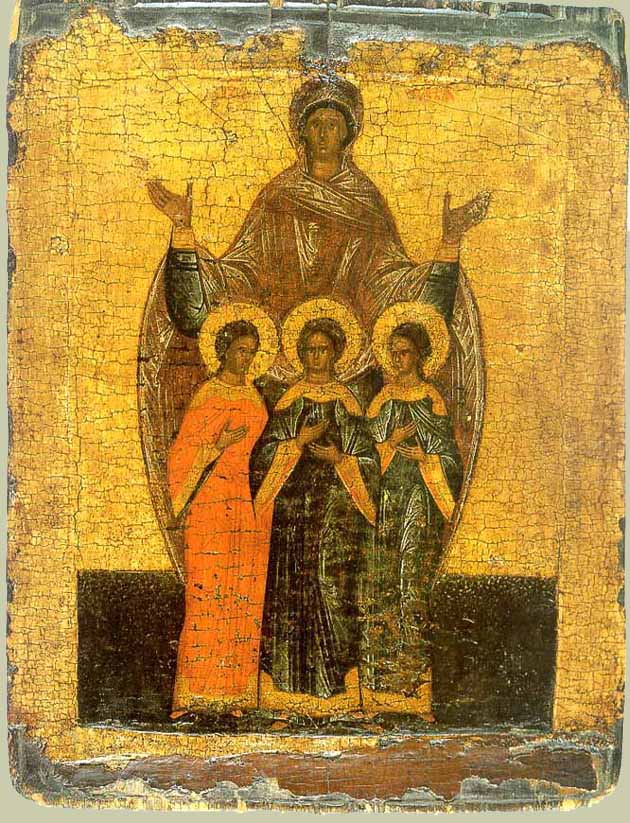The Will of a Byzantine Child: Children’s Agency and Child Labor in Byzantium
Presented By
The Gennadius Library, American School of Classical Studies at Athens
Speaker(s)
Youval Rotman, Tel Aviv University
Cotsen Traveling Fellow 2022-2023
Location
ASCSA, Cotsen Hall, 9 Anapiron Polemou, 106 76 AthensBy registering you will be able to submit your questions through Q&A on Zoom.
About the lecture
 Childhood is no longer believed to be a modern conceptual construction. This is also the case of concepts such as children’s will, work and agency. This paper will reveal the dynamics between the three concepts by focusing on the way in which it was used to restructure the Byzantine family. In defining the borderline between the private and the public in reference to children, Byzantine law and Byzantine literature established the ways in which Byzantine children acted, and caused children to be perceived as social entities. In this they also changed the relation between the child and the family. The paper will examine how the concept of “a child’s will” was developed in Late Antiquity in order to advance a religious agenda that encouraged the child to run away from its family in favour of a new life in a monastery. Thus, children could have a will of their own and act upon it before they reached the age of puberty. This perspective took the children off the private sphere by attributing agency to them. Yet, this new perspective was motivated by an economic agenda in which the need to profit from child labour played an important role.
Childhood is no longer believed to be a modern conceptual construction. This is also the case of concepts such as children’s will, work and agency. This paper will reveal the dynamics between the three concepts by focusing on the way in which it was used to restructure the Byzantine family. In defining the borderline between the private and the public in reference to children, Byzantine law and Byzantine literature established the ways in which Byzantine children acted, and caused children to be perceived as social entities. In this they also changed the relation between the child and the family. The paper will examine how the concept of “a child’s will” was developed in Late Antiquity in order to advance a religious agenda that encouraged the child to run away from its family in favour of a new life in a monastery. Thus, children could have a will of their own and act upon it before they reached the age of puberty. This perspective took the children off the private sphere by attributing agency to them. Yet, this new perspective was motivated by an economic agenda in which the need to profit from child labour played an important role.
About the speaker
 Youval Rotman is a social historian of the Byzantine Mediterranean world, and teaches history in the department of Jewish History at Tel Aviv University. His scholarship focuses on social and cultural processes in the Mediterranean and Near East in the first Millennium. He is the author of Byzantine Slavery and the Mediterranean World (Harvard University Press, 2009), published first in French (Les Belles Lettres, 2004), which contests the idea of the decline of ancient slavery, ascribes a central role to slavery in the medieval transformation of the ancient world, and places slavery at the heart of international and inter-religious dynamics. His second book Insanity and Sanctity in Byzantium: The Ambiguity of Religious Experience (Harvard University Press, 2016), analyzes religious forms of abnormality as a motor of social change. His third monograph, Slaveries of the first Millennium (Amsterdam University-ARC Humanities Press, 2021), is a study in comparative history of slavery. It narrates the formation of the Middle Ages from the point of view of slavery, and challenges the traditional dichotomy between ancient and medieval slaveries, revealing the dynamic, versatile, and adaptable character of slavery to changing circumstances. Prof. Rotman is the co-editor of the Mediterranean Historical Review, and is currently engaged in the study of the meeting points between history, psychology and anthropology, in particular in connecting the new current of ‘applied history’ to social history of Byzantium.
Youval Rotman is a social historian of the Byzantine Mediterranean world, and teaches history in the department of Jewish History at Tel Aviv University. His scholarship focuses on social and cultural processes in the Mediterranean and Near East in the first Millennium. He is the author of Byzantine Slavery and the Mediterranean World (Harvard University Press, 2009), published first in French (Les Belles Lettres, 2004), which contests the idea of the decline of ancient slavery, ascribes a central role to slavery in the medieval transformation of the ancient world, and places slavery at the heart of international and inter-religious dynamics. His second book Insanity and Sanctity in Byzantium: The Ambiguity of Religious Experience (Harvard University Press, 2016), analyzes religious forms of abnormality as a motor of social change. His third monograph, Slaveries of the first Millennium (Amsterdam University-ARC Humanities Press, 2021), is a study in comparative history of slavery. It narrates the formation of the Middle Ages from the point of view of slavery, and challenges the traditional dichotomy between ancient and medieval slaveries, revealing the dynamic, versatile, and adaptable character of slavery to changing circumstances. Prof. Rotman is the co-editor of the Mediterranean Historical Review, and is currently engaged in the study of the meeting points between history, psychology and anthropology, in particular in connecting the new current of ‘applied history’ to social history of Byzantium.
The lecture will be in English.